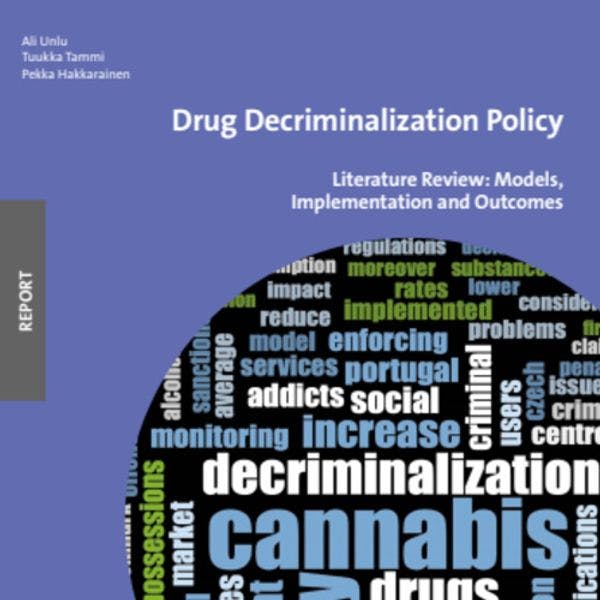Políticas de descriminalización de drogas: Revisión bibliográfica – Modelos, implementación y resultados
Unlu et al. sostienen que el impacto de la descriminalización está depende en gran medida de factores contextuales, incluyendo la inversión en reducción de daños y la participación en la aplicación de la ley. Más información, en inglés, está disponible abajo.
By Ali Unlu, Tuukka Tammi & Pekka Hakkarainen for the Finnish institute for health and welfare (THL)
The report aims to identify legal frameworks, models, and implementation practices of the decriminalization policies and to assess their empirical results. Statistics show that the prevalence of drug use has increased for decades all around the world despite all the strict measures taken. Decriminalization policy has emerged as a response to unbalanced prohibitionist drug policy, which creates not only social injustices at the individual level but also public health problems and high social costs at the macro level. On the other hand, decriminalization is a complex framework and is generally used as an umbrella term representing contemporary strategy. Governments have tailored this framework according to their priorities and expectations. The report categorizes models, implementations, and outcomes to evaluate results. Besides, by providing overall results from three European countries, we aim to assess the impact of the contextual factors and variation of the results. We hope the report will contribute to the discussion of developing better policy models managing drug problems.
Descargas
Temas
Regiones
Perfiles relacionados
- European Monitoring Centre on Drugs and Drug Addiction (EMCDDA)
